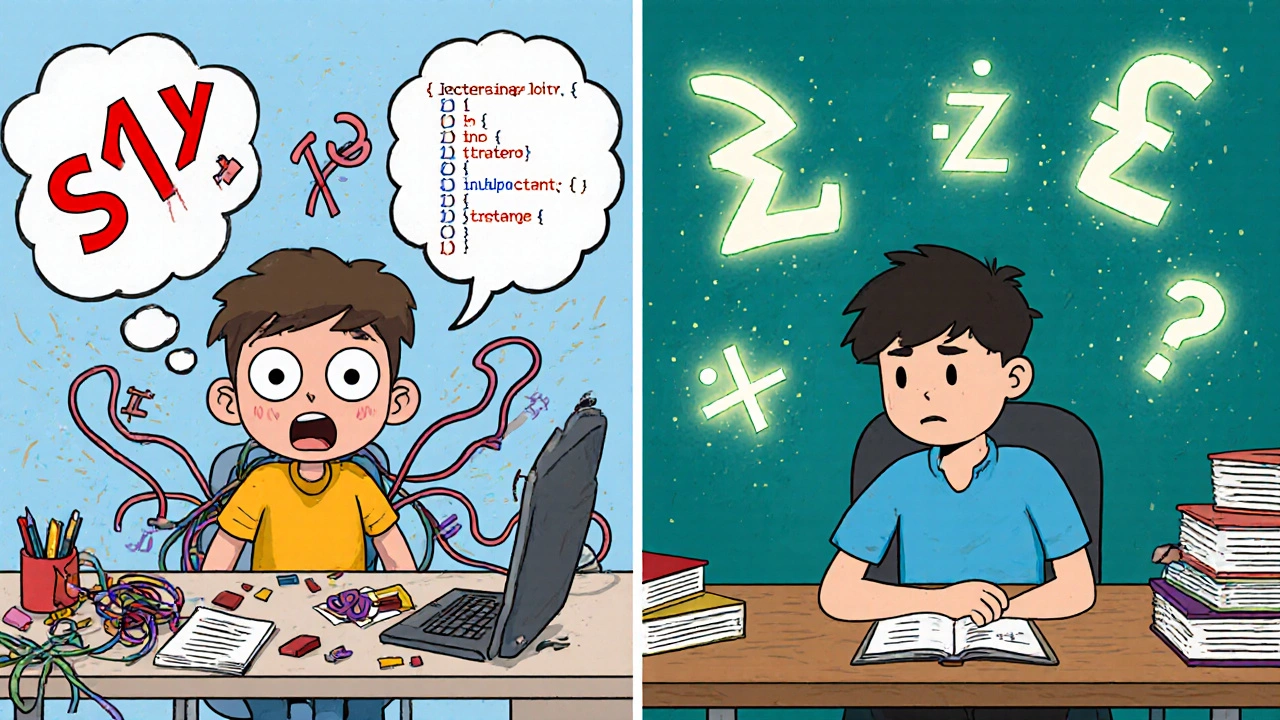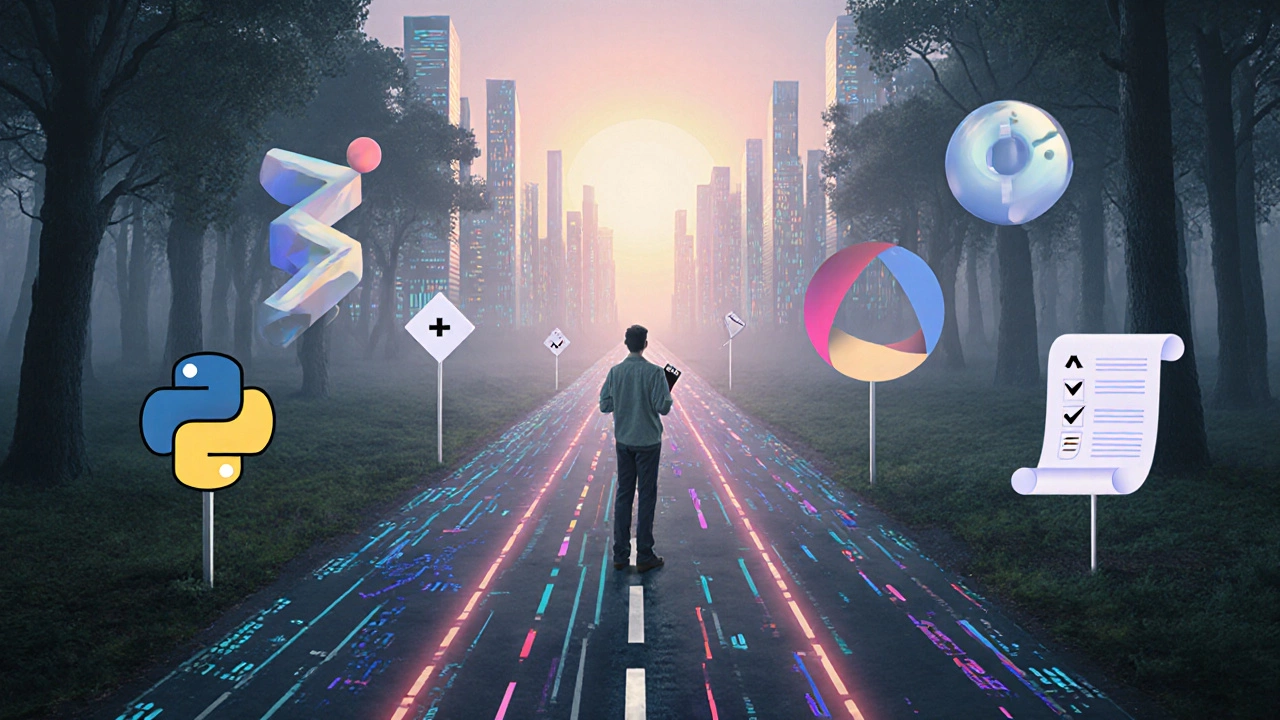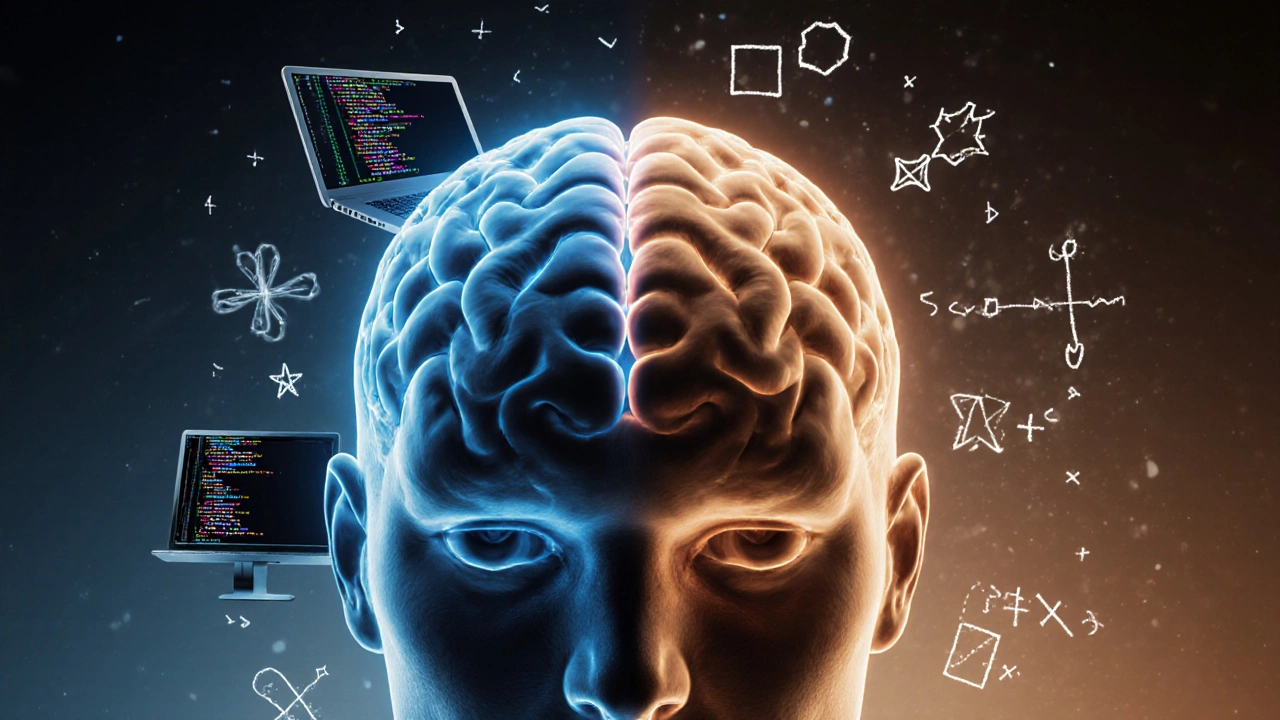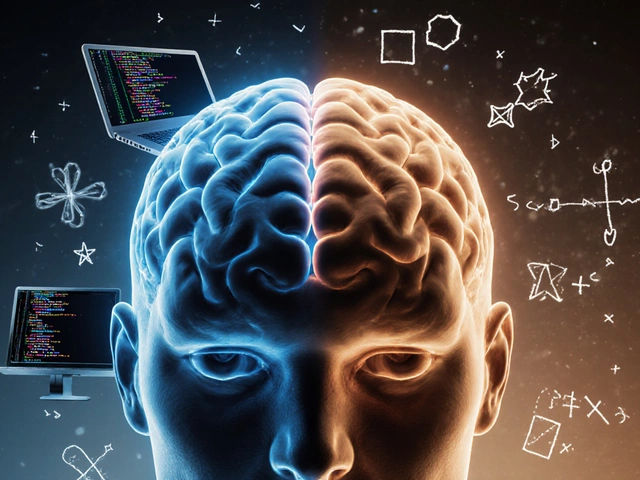When people ask coding vs math, they’re really wondering which brain‑muscle hurts more when you start learning. Both subjects force you to think in new ways, but the pain points differ. This article breaks down the core skills, typical roadblocks, and learning habits for each, so you can decide where to focus your energy.
What is Coding?
Coding is the practice of writing instructions that a computer can execute. It translates human logic into a syntax that machines understand, letting you build web pages, apps, games, and data pipelines. At its heart, coding is about computational thinking: breaking problems into smaller steps, recognizing patterns, and automating repetitive tasks.
What is Mathematics?
Mathematics is the systematic study of numbers, shapes, and logical relationships. From arithmetic to abstract algebra, math provides tools for modeling the real world, proving statements, and quantifying uncertainty. The discipline thrives on rigor, precision, and proof‑based reasoning.
Core Skills Compared
Both fields share some mental muscle, but they emphasize different sub‑skills. The table below highlights the most common ones.
| Skill | Coding | Mathematics |
|---|---|---|
| Algorithmic Thinking | Designing step‑by‑step procedures to solve a problem. | Often expressed through formulas or recurrence relations. |
| Logical Reasoning | Conditional statements, loops, and boolean logic. | Proof techniques - induction, contradiction, direct proof. |
| Abstract Thinking | Understanding data structures, APIs, and design patterns. | Working with abstract spaces, groups, and manifolds. |
| Precision & Syntax | Every missing semicolon can break a program. | Every misplaced symbol can invalidate a proof. |
| Problem Solving | Debugging, refactoring, and optimizing code. | Solving equations, optimizing functions, proving theorems. |
Typical Roadblocks in Coding
- Syntax errors: Forgetting a colon, curly brace, or quotation mark can cause a program to crash instantly.
- Debugging fatigue: Tracing a logical bug through many layers of functions can feel endless.
- Tool overload: IDEs, package managers, and version control add layers of complexity for beginners.
- Conceptual gaps: Understanding recursion or asynchronous programming often requires a shift in thinking.
Many learners report that the initial learning curve feels steep, but once the syntax becomes second nature, the mental load eases.

Typical Roadblocks in Mathematics
- Abstract notation: Symbols like ∑, ∏, or ∂ can be intimidating without concrete examples.
- Proof construction: Learning to write a rigorous argument is a skill that develops over years.
- Conceptual hierarchy: Advanced topics often rely on earlier theorems that may not be fully internalized.
- Calculation anxiety: Speed and accuracy matter in timed exams, adding pressure.
Mathematics can feel like a wall of definitions and theorems, and the fear of “getting the wrong answer” sometimes stops students before they even start.
Learning Strategies That Ease the Pain
Both domains benefit from active practice, but the tactics differ.
- Break problems into tiny steps: In coding, write a function that does just one thing. In math, prove a lemma before tackling the full theorem.
- Use immediate feedback: Run code frequently to see errors. In math, check each algebraic manipulation against known identities.
- Pair up: Code reviews and study groups expose you to alternative ways of thinking.
- Leverage visual aids: Diagram control flow for programs; draw graphs or geometric figures for math.
- Iterate, don’t perfect: Refactor code after it works; rewrite a proof for clarity after the result is established.
Is One Really ‘Harder’?
The short answer: it depends on your brain’s natural preferences.
- If you love visual, concrete outcomes-like seeing a game run on screen-coding’s immediate rewards may feel easier.
- If you thrive on abstract rigor and enjoy proving statements that hold universally, mathematics may click faster.
Research from the University of Edinburgh (2023) showed that students who rated themselves higher in spatial reasoning tended to excel in coding, while those with stronger verbal‑logical scores performed better in pure mathematics. The study surveyed 1,200 undergraduates across engineering, computer science, and maths programs.

Practical Decision Guide
Use the checklist below to decide which path to pursue first, or whether to blend them.
- Do you enjoy building things you can interact with? Start with coding.
- Do you love solving puzzles that have no visual component? Start with math.
- Are you aiming for a career in data science? Combine both-learn Python (coding) and statistics (math).
- Do you need a quick confidence boost? Pick the subject with the gentler initial learning curve for you (often coding for visual learners, math for analytical thinkers).
Conclusion: Choose the Challenge That Grows You
Neither coding nor mathematics is inherently harder; each presents its own set of hurdles. The “harder” label is a personal signal: if one area feels like a wall, that’s where you stand to gain the most by pushing through. Embrace the overlap-many algorithmic problems are math‑heavy, and many mathematical models are implemented through code. Your best answer is the one that keeps you learning.
Frequently Asked Questions
Is coding easier for high school students than math?
It varies. High school curricula often introduce coding through block‑based tools (like Scratch) that hide syntax, making the early steps feel more approachable. However, rigorous math concepts (like geometry and basic algebra) are also taught concretely. The perceived ease comes down to teaching style and the student’s learning preference.
Can improving math skills help me become a better programmer?
Absolutely. Strong algebraic reasoning aids in algorithm design, while calculus and statistics are essential for machine‑learning pipelines. Many programming problems reduce to solving equations or optimizing functions, so solid math foundations accelerate learning.
Do coding bootcamps teach enough math for data‑science roles?
Bootcamps usually focus on practical programming, but reputable ones include dedicated modules on linear algebra, probability, and statistics-key pillars for data science. If you need deeper theory, supplement the bootcamp with online math courses.
What’s the best first language for someone who struggles with math?
Python is often recommended. Its readable syntax reduces syntax‑error frustration, and its rich libraries (NumPy, pandas) let you experiment with math concepts without heavy manual calculation.
How can I tell if my difficulty is with the subject or with my study habits?
Track how long you stay stuck on a specific concept. If the same type of problem repeats across topics, the issue may be methodological (e.g., not breaking problems down). Try alternative resources-videos, interactive platforms, or peer tutoring-to see if the barrier lifts.






